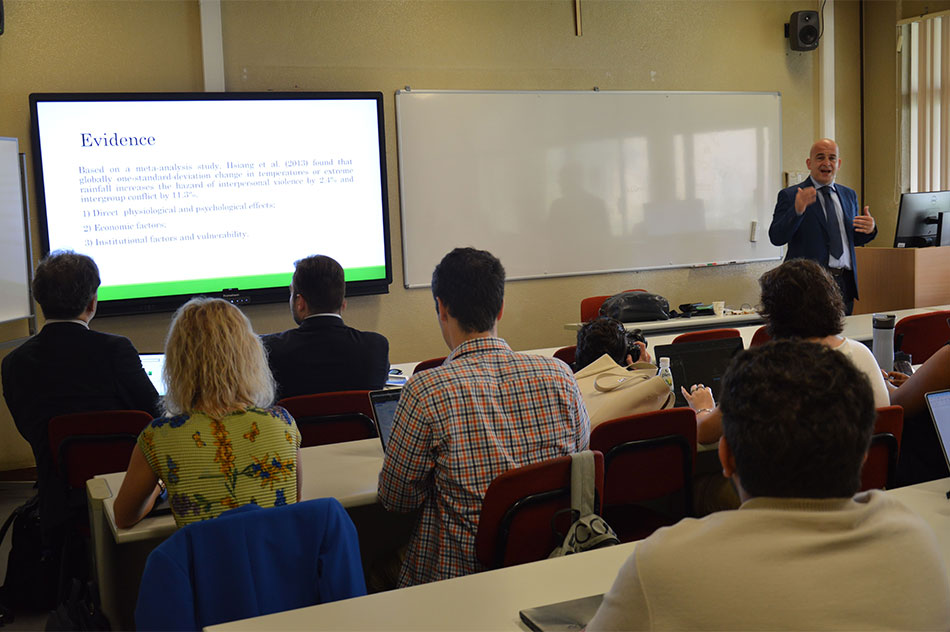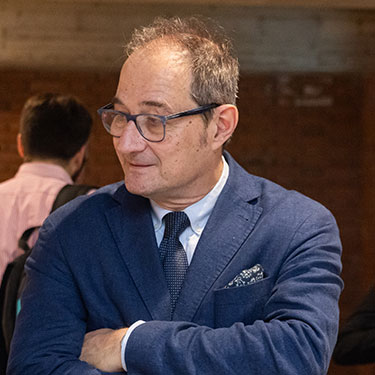Raul Caruso gave a lecture on the impact of climate change on social turmoil, and violence and protest: «The class was designed to stimulate students' critical thinking on the relationship between violence and climate change, which was the core of the lecture. Students showed great engagement, bringing various approaches to the topic. This is due to the topic's interdisciplinary nature and the different cultural contexts from which the students came. In fact, I believe the main strength of this SACRU initiative is that it stimulated both students and faculty members' reflections».
Students were given the chance to have a 360-degree experience that was not only centred on class but also on cultural visits to the beauties of Lisbon, such as the Castle of Sao Jorge, the Belem Tower, and the Monastery of Jeronimos. Other social moments were a boat tour of Lisbon and listening to Fado, a typical Portuguese music, in a restaurant. These activities were important to complement students' knowledge of democracy by strengthening inter-community ties and familiarity with SACRU.
The feedback from students in this regard was nothing but positive. «It was a real pleasure to travel to Lisbon to attend the first SACRU Summer School. The theme of the program provided a fascinating and timely backdrop for our discussions. With my background in law, I found the Summer School's interdisciplinary approach immensely valuable, especially as it allowed me to learn from other disciplines, notably political theory. It was a remarkable learning pathway that allowed me to engage deeply with these topics. I had the opportunity to discuss with experts and peers from a variety of disciplines and cultures, making it a truly interdisciplinary and multicultural exchange. As part of the program, we visited various historical places such as Sintra, the National Palace of Pena, and the Belem Tower, among others. The experience of participating in the SACRU Summer School and immersing myself in Portuguese culture was, in a word, "inesquecível" – unforgettable. I am deeply grateful to SACRU and Universidade Católica Portuguesa for organizing such an excellent program and for their memorable hospitality», Lima Atkar, Ph.D. student in Law&Business at the Australian Catholic University, said.
To conclude the Summer School, students will present an academic portfolio composed of 10-15 sources on a case of their choice on democratic backsliding.
SACRU is an international network that includes the Australian Catholic University (Australia), Boston College (USA), Pontificia Universidad Católica de Chile (Chile), Pontifícia Universidade Católica do Rio de Janeiro (Brazil), Sophia University (Japan), Universidade Católica Portuguesa (Portugal), Università Cattolica del Sacro Cuore (Italy), and Universitat Ramon Llull (Spain). SACRU's mission is to promote global cooperation among research-intensive Catholic universities, advancing world-leading knowledge and higher education for the common good. The Alliance supports a transdisciplinary approach, encouraging academics to work together to tackle global challenges.





